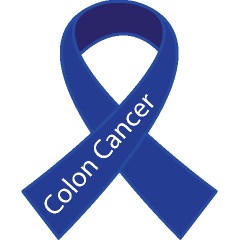
Colon cancer, also known as colorectal cancer, is a form of cancer that is the second leading cancer killer among men and women in the United States. Colon cancer has some common warning signs and symptoms that may be concerning and warrant a visit to the doctor’s office to get checked. Additionally, it is often recommended that adults over 50 get routine screening to check for certain things like polyps which may indicate cancer. While it may seem embarrassing or uncomfortable to discuss certain symptoms related to colon cancer, or you may feel uneasy at the idea of a routine screening, the benefits of discussing symptoms and getting screenings with a physician far outweigh those feelings. Because colon cancer is one of the most deadly forms of cancer, early detection can literally be life saving for many patients.
First it is important to understand what colon cancer is and what some of the most common symptoms are. The CDC describes what exactly colon cancer is, “Colorectal cancer is cancer that occurs in the colon or rectum. Sometimes it is called colon cancer, for short…The colon is the large intestine or large bowel. The rectum is the passageway that connects the colon to the anus. Sometimes abnormal growths, called polyps, form in the colon or rectum. Over time, some polyps may turn into cancer. Screening tests can find polyps so they can be removed before turning into cancer. Screening also helps find colorectal cancer at an early stage, when treatment often leads to a cure.” A common symptom of colon cancer is a change in bowel habits. This may include diarrhea, constipation, or a change in consistency or color of your stool. Another symptom is persistent abdominal discomfort such as gas, cramping, bloating or pain. In addition, rectal bleeding (that is either bright red or very dark) is another symptom of colon cancer. Finally, weakness or fatigue, or any unexplained weight loss, may be a symptom of cancer. Treatment often includes one, or a combination of surgery, radiation therapy, chemotherapy, and targeted therapy. For advanced colon cancer, ablation or embolization may be used. It is important that, should you notice any of these symptoms, that you discuss them with your doctor so that colon cancer can be ruled out. Should a colon cancer diagnosis be determined, the stage and specific diagnosis will determine what treatment path is chosen.

